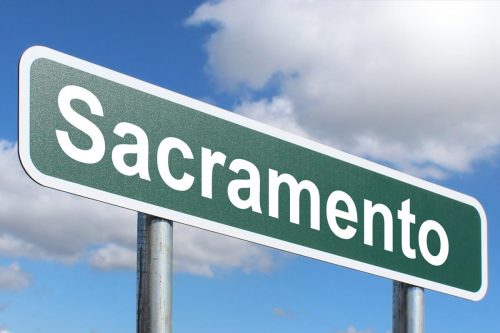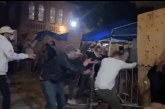


This work is licensed under a Creative Commons Attribution-ShareAlike 3.0 Unported License.
By Crescenzo Vellucci
The Vanguard Sacramento Bureau Chief
SACRAMENTO, CA – Sacramento County Sheriff’s Office (SCSO) “disproportionately stops Black people for traffic violations,” charged a report issued this week by the ACLU NorCal and Catalyst California based on an analysis of 2019 data collected under California’s Racial and Identity Profiling Act (RIPA).
The report made a series of recommendations for Sacramento County leaders to “improve community safety and reduce systemic racial inequity in the criminal legal system,” including suggesting the District Attorney not prosecute the cases.
The report said data revealed that “when sheriff’s deputies made traffic stops, they spent significant time enforcing non-safety related violations—such as a broken taillight or expired registration—that pose little risk to community safety. Police often use such stops as a ‘pretext’ to look for evidence of criminal activity when they don’t have reasonable suspicion a crime has been committed or probable cause for a search.”
Noting Sacramento County leaders in 2020 “declared racism a public health crisis,” the analysis also found “SCSO deputies were most likely to stop Black people for traffic violations, a disturbing finding given the number of high-profile police killings of Black people during traffic stops.”
The report charges the county hasn’t lived up to that declaration, noting “the county fails to sufficiently invest resources in programs that advance those interests and instead spends an overwhelming amount of money on its sheriff’s office, underwriting practices that harm Black and Brown people and undermine community safety.”
The analysis suggests “harms (by Sacramento County) include psychological and emotional trauma community members experience when SCSO spends significant time on racially disproportionate traffic violations that are not a threat to community safety, such as equipment violations (defective brake lights) and non-moving violations (invalid registration).
“These non-safety-related traffic stops are indicative of pretextual stops. Moreover, there is a lack of evidence linking increased SCSO funding to improved community safety. Instead, data show that SCSO patrol activities are harmful, unproductive, and racially disproportionate, undermine community safety, and waste taxpayer dollars.”
The report claims, “SCSO deputies disproportionately stop Black people for traffic violations, reasonable suspicion and “consensual” searches compared to other racial groups. In 2019, SCSO stopped Black people for equipment violations (e.g., defective brake lights) at a rate nearly 5.5 times higher than for white people.
“Deputies stopped Black people for non-moving violations (e.g., invalid registration) at a rate nearly five times higher than for white people. More than two-thirds (68 percent) of the 4,242 hours SCSO deputies logged enforcing traffic violations in 2019 were spent on non-safety related infractions such as equipment and non-moving violations that have little impact on community safety.”
And, the report emphasizes, “SCSO deputies spend a considerable amount of time on traffic stops that result in a warning or no action. In 2019, nearly 3 of every 4 hours spent enforcing traffic violations led to a warning or no other action.”
The ACLU/Catalyst California report recommended “SCSO should create a policy to end pretextual stops, (and) the Sacramento District Attorney’s Office should use its prosecutorial discretion to implement a policy of not charging cases that arise from racially biased pretextual stops.”
And, the report added, the county and the board of supervisors should invest in community-based organizations that provide auto repair to reduce motorists’ interactions with law enforcement, and increase staffing the county Public Defender’s Office to “address recidivism, supporting incarcerated individuals with mental health care needs, reducing jail overcrowding, and providing jail discharge plans.”
Currently, the report notes, the Public Defender’s Office receives about half the funding annually as does the District Attorney’s Office.
Full report: https://www.aclunc.org/sacramento-safety-report




